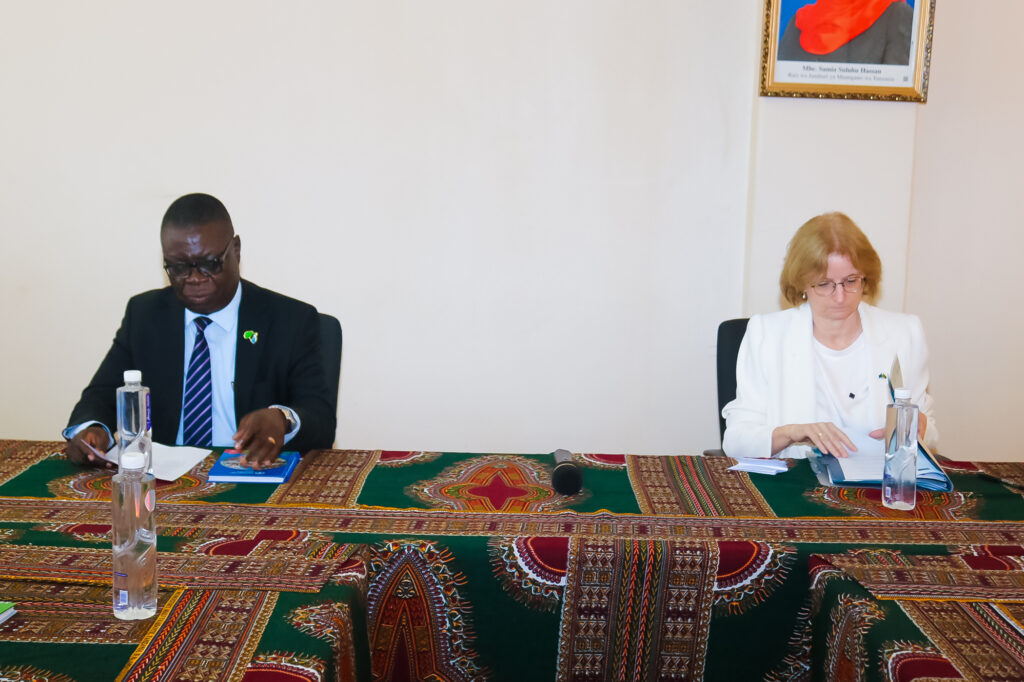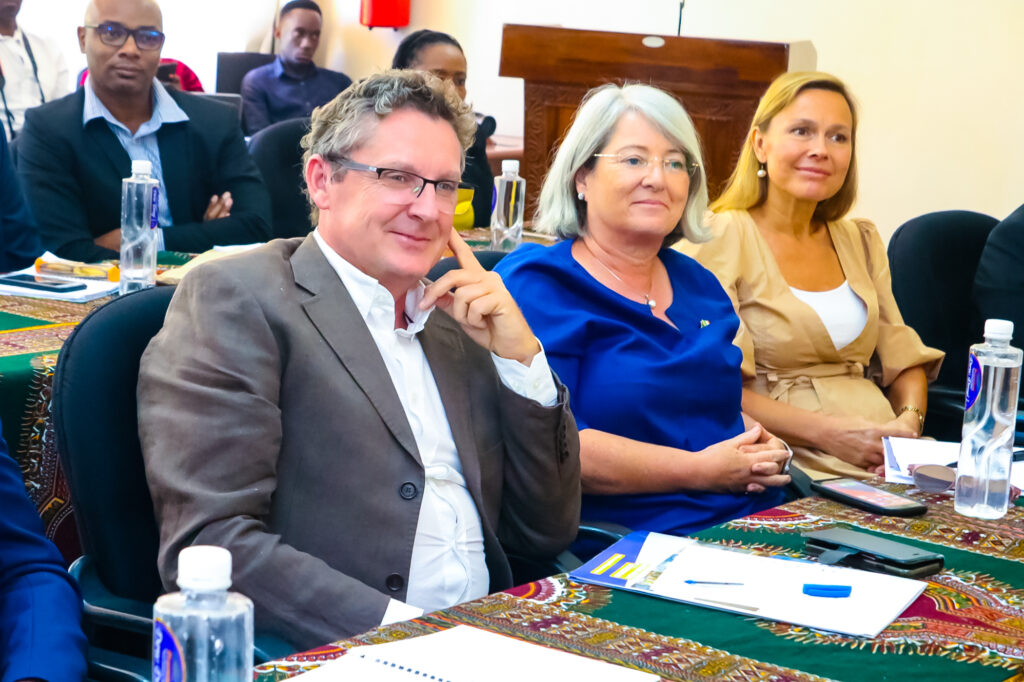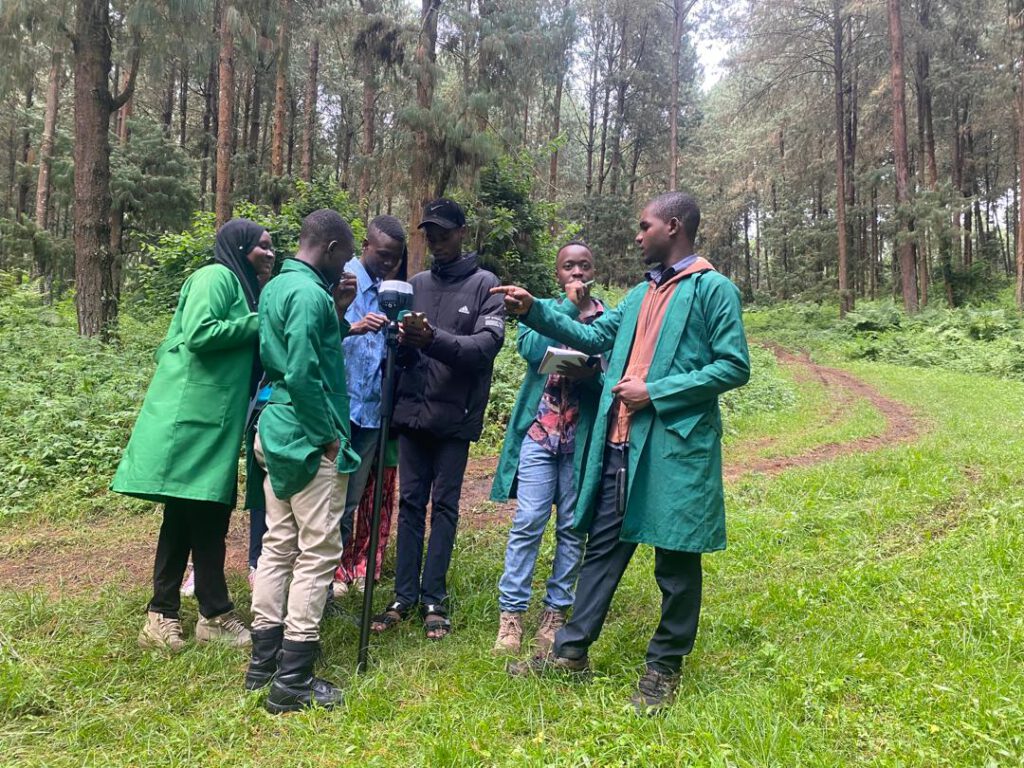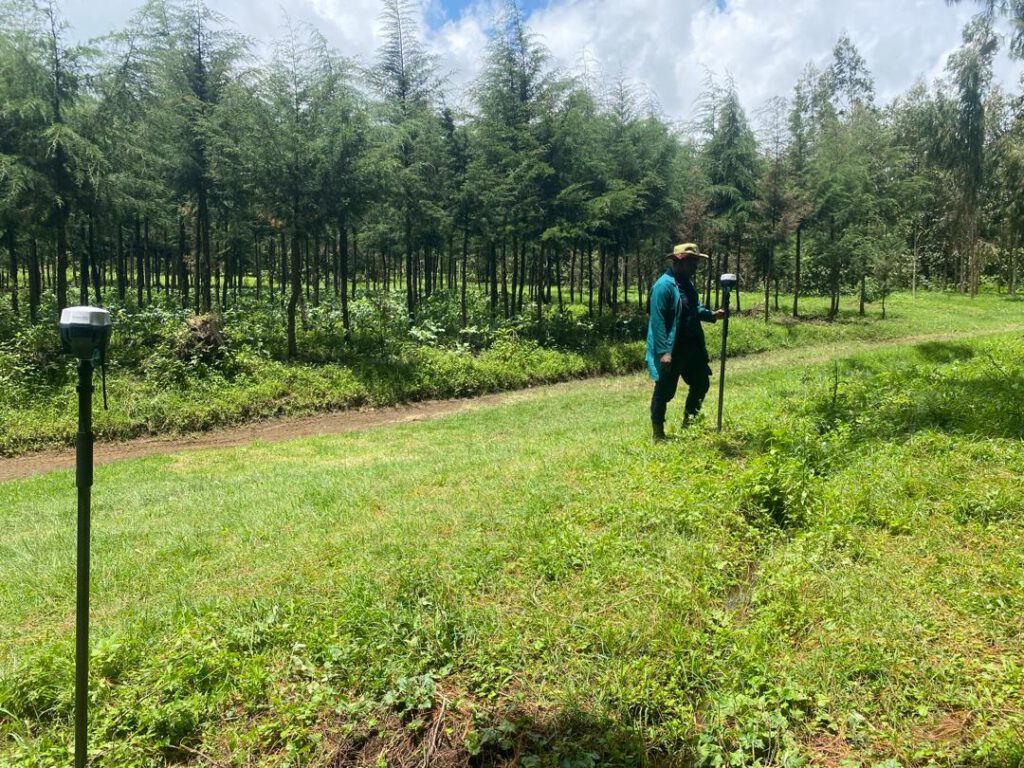Visit of EU Heads of Mission to Sokoine University of Agriculture, April 29, 2024
By Ernest William Mauya, Msilikale Msilanga and Suzana Magobeko
On April 29, 2024, Sokoine University of Agriculture (SUA) welcomed a delegation of the Heads of Mission of the European Union. The ten-member delegation included Christine Grau, Head of the European Union (EU) Delegation to Tanzania and the East Africa Community, along with ambassadors from Belgium, Finland, Germany, Italy, the Netherlands, Denmark, Sweden, and Ireland, as well as the Deputy Ambassador of France.
This visit is the outcome of the successful implementation of various EU-supported projects hosted and implemented by SUA. The delegation was hosted by SUA’s Vice Chancellor Prof. Raphael Chibunda, in collaboration with the entire SUA management team. In his opening remarks, he mentioned that this was the first time SUA has received such a large number of EU Heads of Mission. The Vice Chancellor thanked the Delegation for setting up their time to visit SUA. This was followed by a discussion on the implementation and achievements of three key projects of interest to the delegation: the National Carbon Monitoring Center (NCMC), the SUA Institute of Pest Management, and the Finnish project GeoICT4e: Social Innovations in Geo-ICT Education for Improved Employability



The GeoICT4e project, a collaborative initiative coordinated by the University of Turku (Finland) under the Higher Education Institutions Institutional Cooperation Instrument (HEI ICI) funded by the Finnish Ministry of Foreign Affairs, aims to improve the quality of higher education and the skills of young people in applying geospatial and ICT to various fields (e.g. Forest) , thereby widening their employment opportunities.
Dr. Ernest William Mauya presented the activities and achievements of the GEOICT4e project, highlighting how the project has enhanced digital geospatial skills to students and staff. He explained that, the project has developed digital platforms and e-learning assets accessible to students and researchers worldwide. This included also short courses through staff mobility to Finland. Importantly, the GEOICT4e project has developed and implemented a Multi-Competence Learning approach, where students actively collaborate with peers, teachers, mentors, and societal stakeholders to identify complex challenges and devise solutions using digital geospatial tools and data. This approach has been considered to be a major outcome of the project.

Additionally, the project supported the purchase of mobile digital equipment, including Differential GPS systems, currently used for practical training by students. During their industrial attachments, BSc Forestry students from SUA used the EMLID Reach RS2 Differential GPS for precision planning of timber harvesting operations in their training forests at Arusha, Tanzania.


Following the presentation, a discussion on the impact of the GeoICT4e project to students and graduates was initiated. It was concluded that the project has significant potential to enhance the digital skills of young graduates and broaden their employment opportunities.
